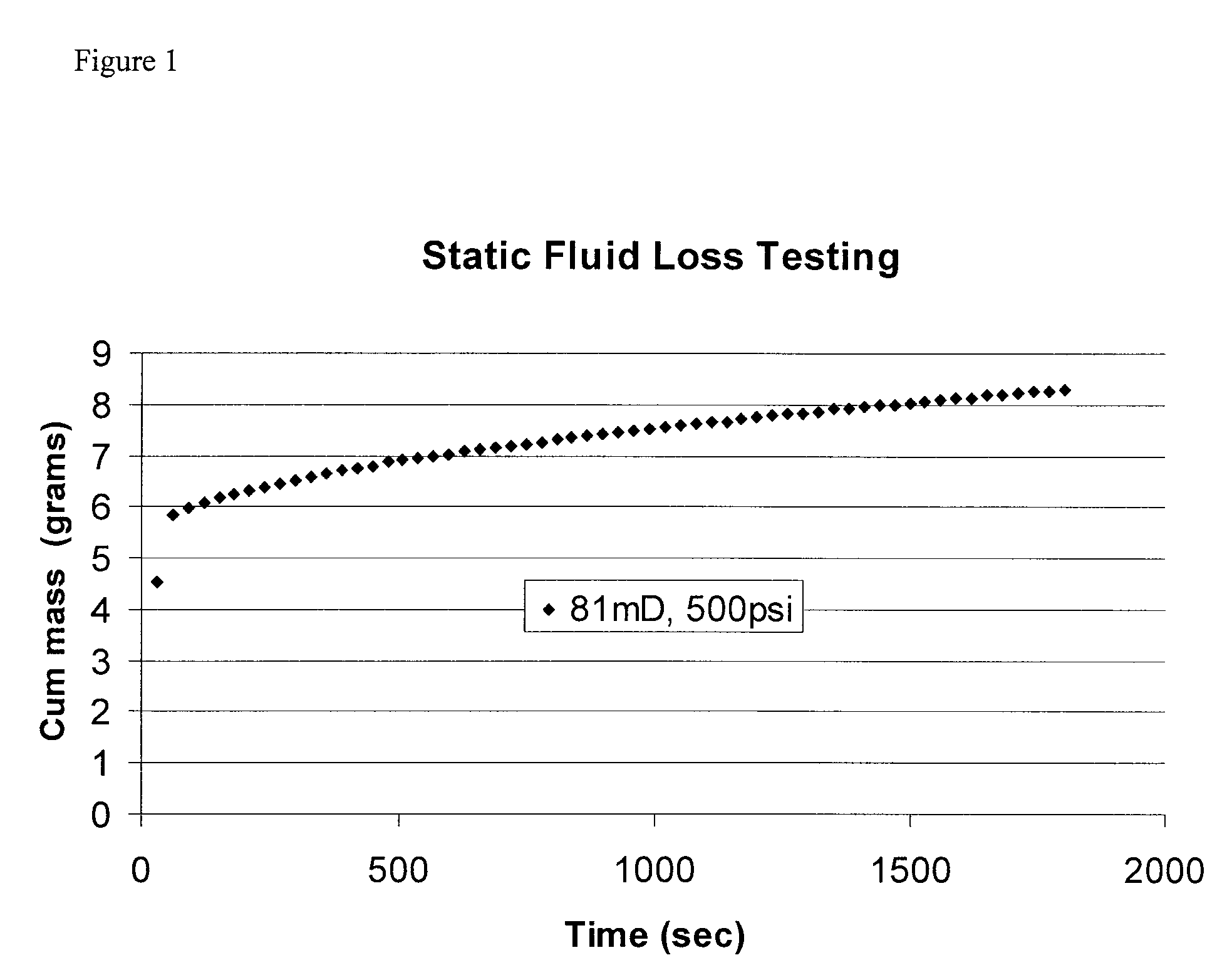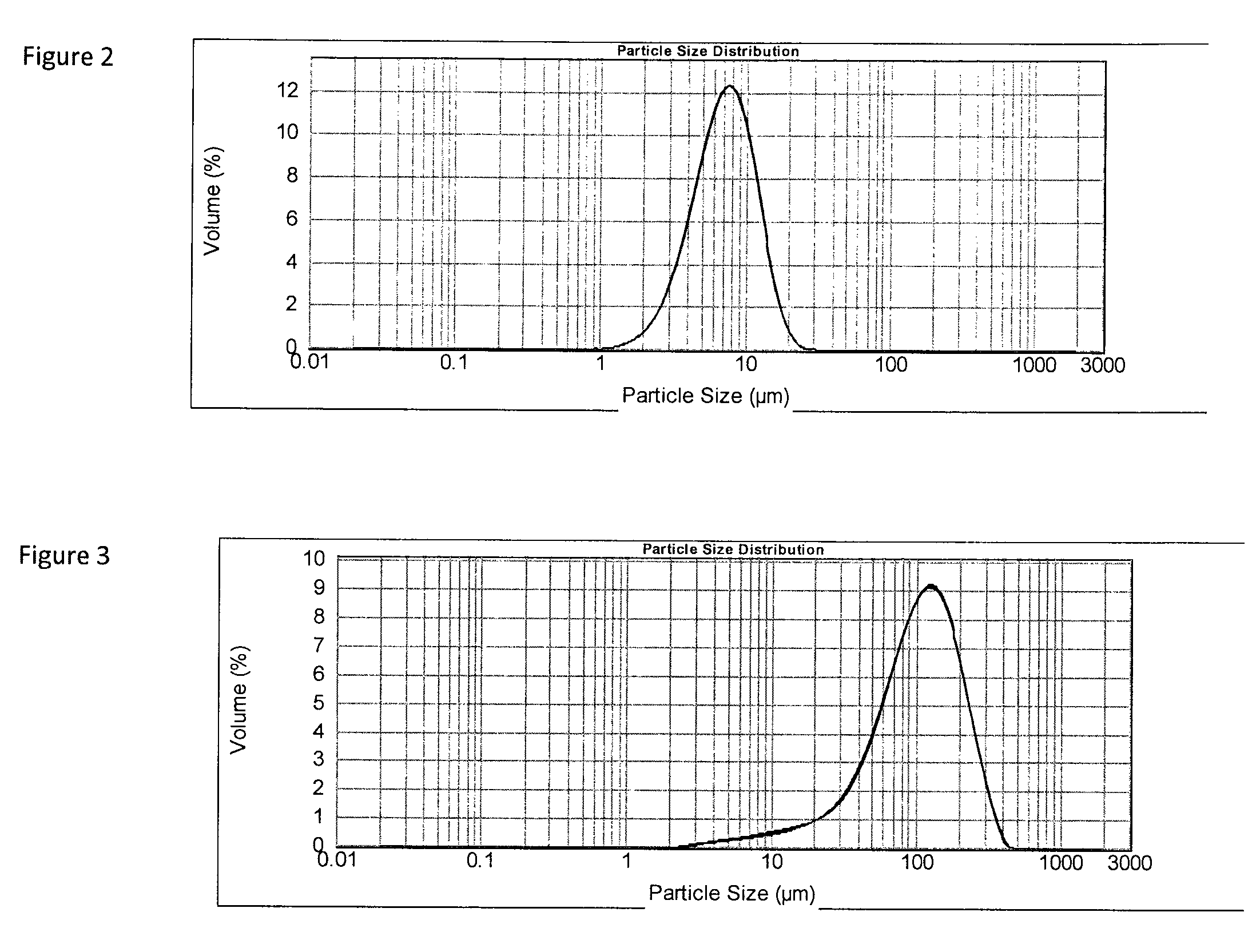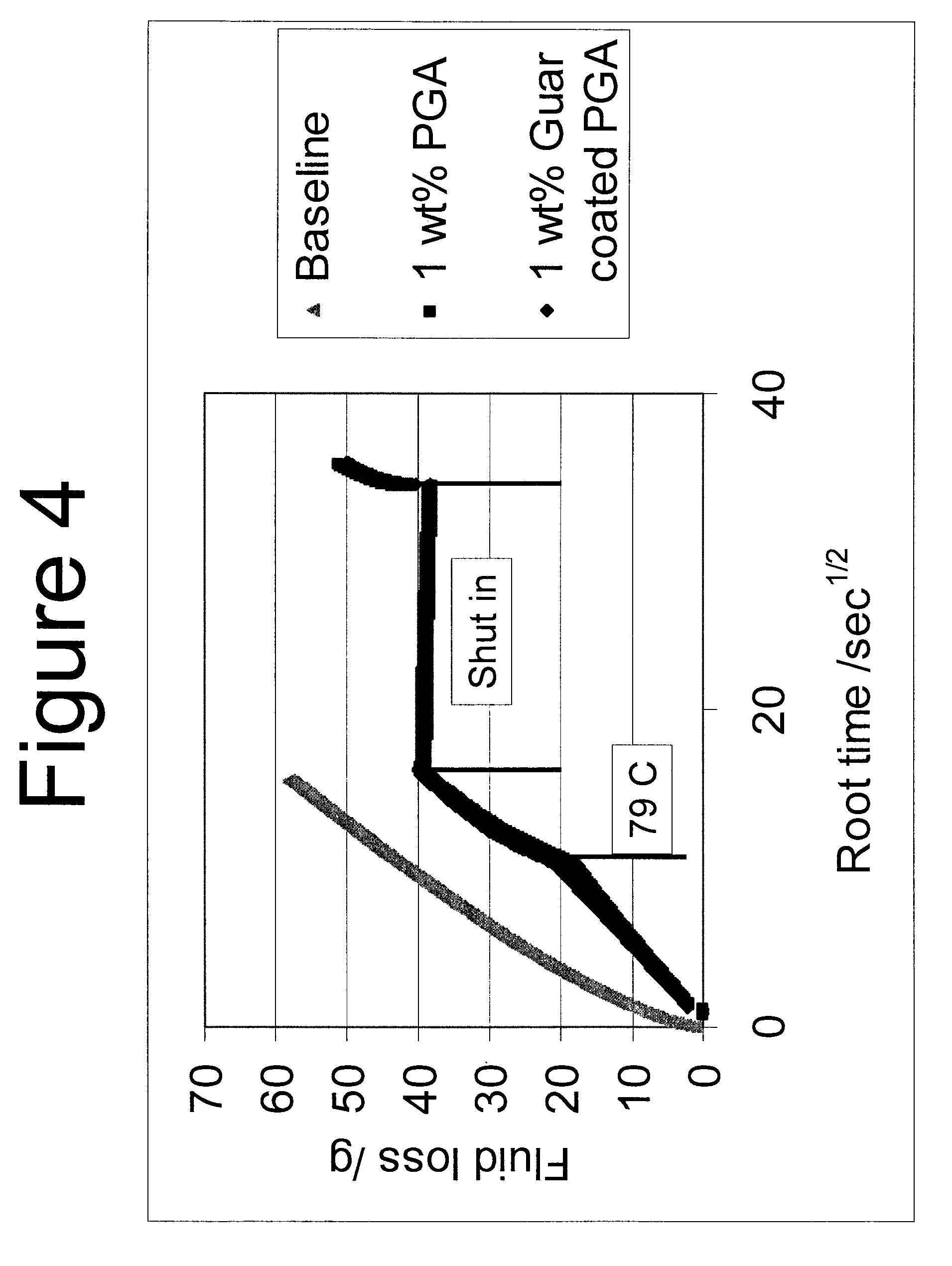Polymeric microspheres as degradable fluid loss additives in oilfield applications
a technology of fluid loss additives and polymer microspheres, which is applied in the direction of cabinetry, sealing/packing, and wellbore/well accessories, etc., can solve the problems of premature setting and bridging, undesirable fluid growth, and fracture into a region
- Summary
- Abstract
- Description
- Claims
- Application Information
AI Technical Summary
Benefits of technology
Problems solved by technology
Method used
Image
Examples
example 1
[0079]Creation of crosslinked guar microspheres as dissolvable fluid loss additives. To create crosslinked guar microspheres, a two-phase aqueous polymer solution was created containing 2 wt % guar gum and 4 wt % polyethylene glycol (8000 molecular weight) in DI water. Both polymers were added to the water simultaneously while stirring moderately in a WARING BLENDER™. The polymers were continuously stirred for an hour to create a hydrated but phase separating bi-polymer solution. Under shear, the polymer solution consists of guar droplets dispersed in a continuous PEG solution.
[0080]The solution was sheared in this condition while the pH was brought up to approximately 10, and buffered to this condition by the addition of sodium sesquicarbonate. Then, a borate crosslinker solution (in DI water) was added to the sheared polymer blend.
[0081]After shearing for an additional two minutes, the blender was turned off and the contents of the polymer solution were examined. Instead of having...
example 2
[0084]Crosslinked polymer beads with solid acid particles inside. In a second example of making crosslinked polymer beads from guar, the beads of example 1 have been reproduced, but this time with 8 micron particles of polyglycolic acid embedded within the beads. The process is the same as in example 1, but 0.5% by weight of the PGA particles are added to the guar-PEG water-in-water emulsion before the borate crosslinker is added.
[0085]Care must be taken to assure that the pH remains above 8 during the addition process, as any free glycolic acid must be neutralized when the PGA is added to the mixture. In the example, this was achieved by use of a pH buffer, sodium sesquicarbonate. A picture of the beads embedded with solid acid particles photographed on a microscope slide was taken. The PGA beads are visible as dark spots within the otherwise clear guar beads. The 8 micron PGA particles fit easily in the larger guar beads, and the mean bead size (as measured on the Mastersizer) is ...
example 3
[0087]Crosslinked polymer beads. The previous examples have focused on crosslinked polymeric microbeads made from guar crosslinked with borate. To demonstrate that the approach of phase separating a polymer in a water-water emulsion has broader application for crosslinking microbeads, this example was created by phase separating sodium alginate (an anionic polysaccharide) with polyethylene glycol and then crosslinking the alginate beads with calcium.
[0088]Sodium alginate was phase separated as the internal droplet phase of an aqueous solution by adding 0.5% sodium alginate, 10% KCl and 6% PEG 8000 into 100 ml of DI water in a WARING BLENDER™. After dispersing the polymers and allowing the mixture to stir for a minimum of 30 minutes, 0.3% CaCl2 was added to crosslink the alginate beads. Upon stopping the blender and measuring the size of the beads on the MASTERSIZER™, they were found to have a broad particle size distribution with most of the particles having characteristics sizes be...
PUM
| Property | Measurement | Unit |
|---|---|---|
| pH | aaaaa | aaaaa |
| diameter | aaaaa | aaaaa |
| diameter | aaaaa | aaaaa |
Abstract
Description
Claims
Application Information
 Login to View More
Login to View More - R&D
- Intellectual Property
- Life Sciences
- Materials
- Tech Scout
- Unparalleled Data Quality
- Higher Quality Content
- 60% Fewer Hallucinations
Browse by: Latest US Patents, China's latest patents, Technical Efficacy Thesaurus, Application Domain, Technology Topic, Popular Technical Reports.
© 2025 PatSnap. All rights reserved.Legal|Privacy policy|Modern Slavery Act Transparency Statement|Sitemap|About US| Contact US: help@patsnap.com



